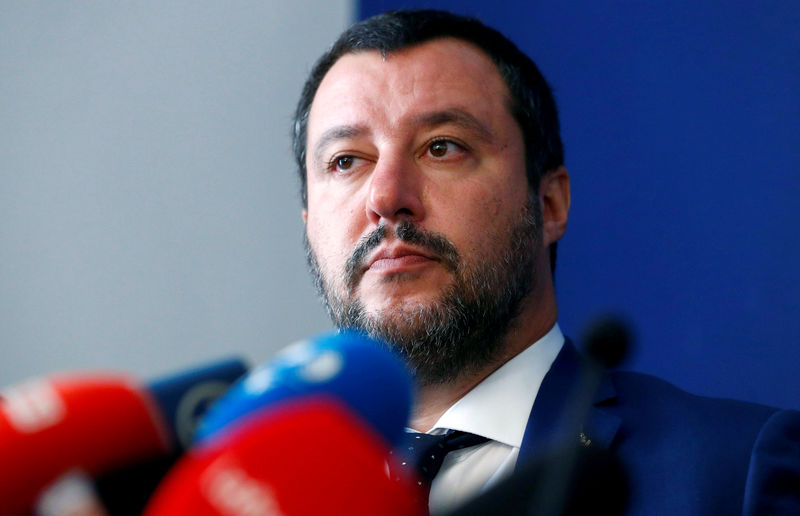By Jan Strupczewski
BRUSSELS (Reuters) - Italy re-submitted its draft 2019 budget to the European Commission with the same growth and deficit assumptions as a draft rejected for breaking European Union rules, stepping up its showdown with the EU over its fiscal policy.
The Commission, which is the guardian of EU laws, sent back Italy's previous draft last month to be revised because its growth assumptions were too high, the deficit was to be bigger rather than smaller and debt was to be stable instead of lower.
But Italy's euro-sceptic government of the far-right League and populist Five Star movement dug in its heels on the main assumptions of the draft and, defying a call from all euro zone finance ministers last week, stuck to its initial plan.
The only concession offered by Rome in the revised plan is to sell more state assets and to pay off debt faster.
Italy's structural deficit, which excludes one off items like privatisation and business cycle swings and is key for the assessment of fiscal health, is still to rise 0.8 percent of GDP next year rather than fall 0.6 percent as required by EU rules.
European Central Bank policymaker Klaas Knot said Italy should comply with the rules or face higher borrowing costs because the ECB would not rush to the aid of any single country.
"It's quite pertinent that Italy actually complies with the rules," Knot told CNBC television. "If it doesn't, the result is that spread will go up."
Italy's 10-year bond yield rose 9 bps to a three-week high at 3.54 percent (IT10YT=RR), pushing the gap over benchmark 10-year German Bund yields to 314 bps from around 303 bps late on Tuesday on news of the revised budget. The cost of insurance against Italian default also rose.
"While boosting its privatisation plan and committing to mitigate spending overshoots, the Italian government did not change its deficit targets," Morgan Stanley (NYSE:MS) economist Daniele Antonucci said. "This will likely lead the European Commission to recommend an infringement procedure."
STILL IN BREACH OF EU RULES
EU fiscal rules require highly indebted governments such as Italy to cut their structural deficit and debt every year until government books are in balance or surplus in structural terms and public debt is below 60 percent of GDP.
Italy has a public debt of 131 percent of GDP, the second highest in the EU after Greece, and other euro zone finance ministers are worried Italy could trigger a sovereign debt crisis like that one that nearly killed the euro some years ago.
In the revised draft, Italy forecasts that its debt would now rapidly fall to 129.2 percent in 2019, 127.3 in 2020 and 126.0 in 2021. But markets doubt that.
"Government debt is unlikely to come down over 2019-21, in our view," Morgan Stanley's Antonucci said. "The fiscal boost to growth will probably have some beneficial effects on consumption. But it's unlikely to be so big as to result in an improvement of the public finances."
Markus Ferber, a German conservative on the European Parliament's Economic and Monetary Affairs Committee, called on the Commission to be tough when it issues its assessment of the revised Italian budget on Nov. 21.
"Italy is going for escalation," Ferber said. "If the integrity of the EU fiscal rules matter at all for the European Commission, it has to take a tough stance on this provocation."
"Stubbornness will do Italy more harm than good. The markets have already amped up the pressure by sending the spreads for Italian bonds steadily up over the past few months - this trend is likely to continue," he said.
The European Commission now has the option of starting disciplinary steps against Rome over the structural deficit rise, and the unrealistic growth and debt assumptions. The Commission forecast last week Italy's debt would remain stable at 131 percent of GDP until 2020.
The disciplinary steps could eventually end in fines for Italy, although this option has never been used so far. Italy's Deputy Prime Minister Matteo Salvini warned on Wednesday the EU would make a mistake if it moved to sanctions.

"They've got it wrong if they are even just thinking of imposing fines on the Italian people," Salvini, who is also the leader of the League, told state-owned radio RAI.